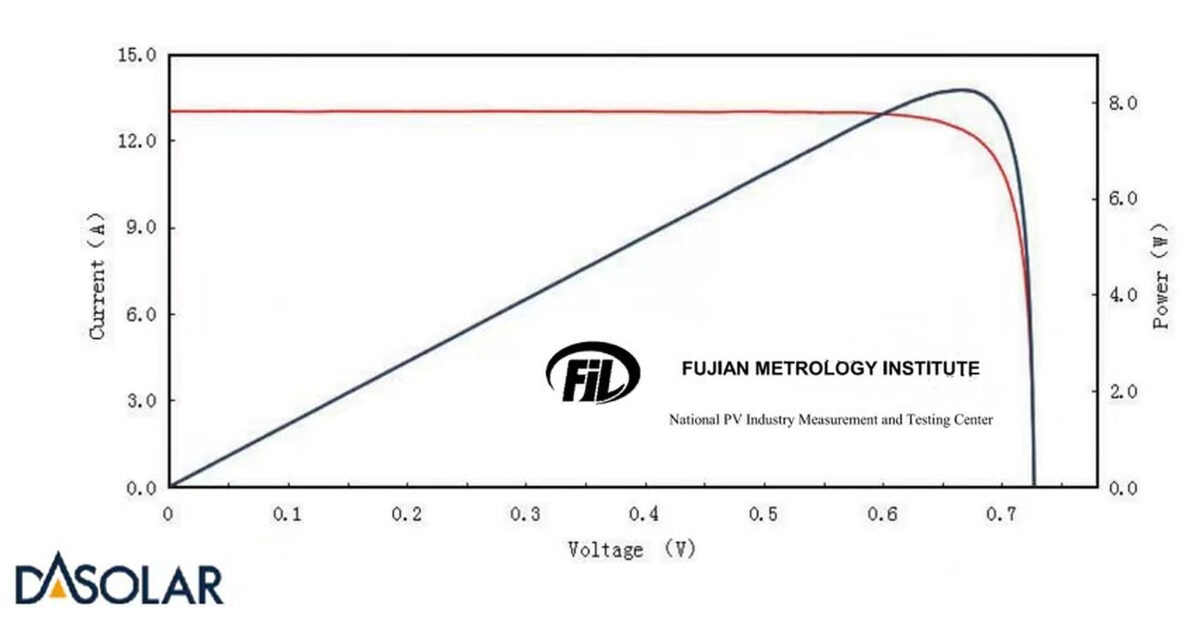China’s DAS Solar says it has achieved a power conversion efficiency of 26.33 % for an M10 n-type solar cell based on tunnel oxide passivated contact (TOPCon) technology.
The Fujian Metrology Institute in China has confirmed the result.
The cell has an area of 333.4 cm2 and is based on passivating contacts based on polysilicon and silicon monoxide (SiOx), which reportedly reduce carrier recombination at the metal/silicon interface, thus improving short-circuit current and fill factor.
“Using advanced techniques such as Poly-finger further enhances quantum efficiency across a wide spectrum,” the manufacturer said in a statement. “The new materials have dramatically reduced auger recombination of emitter electrodes, resulting in the highest short-wavelength spectral response to external quantum efficiency (EQE) characteristic of over 85% at 300 nm.”
The Chinese manufacturer had achieved an efficiency of 26.24% for the same device in April. “The achievement of an open-circuit voltage as high as 730mV for DAS Solar's TOPCon cells indicates a significant breakthrough in the development of passivation technologies, which holds great significance for the continuous improvement of TOPCon cell efficiency,” said Das Solar CTO, Song Dengyuan, said at the time.
Das Solar is based in headquartered in Quzhou City, Zhejiang province, and currently has an annual TOPCon solar module capacity of 30 GW. Its two largest shareholders are China Huaneng Group and China Merchants Group.
Popular content
This content is protected by copyright and may not be reused. If you want to cooperate with us and would like to reuse some of our content, please contact: editors@pv-magazine.com.



1 comment
By submitting this form you agree to pv magazine using your data for the purposes of publishing your comment.
Your personal data will only be disclosed or otherwise transmitted to third parties for the purposes of spam filtering or if this is necessary for technical maintenance of the website. Any other transfer to third parties will not take place unless this is justified on the basis of applicable data protection regulations or if pv magazine is legally obliged to do so.
You may revoke this consent at any time with effect for the future, in which case your personal data will be deleted immediately. Otherwise, your data will be deleted if pv magazine has processed your request or the purpose of data storage is fulfilled.
Further information on data privacy can be found in our Data Protection Policy.